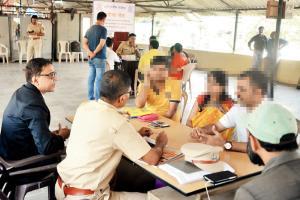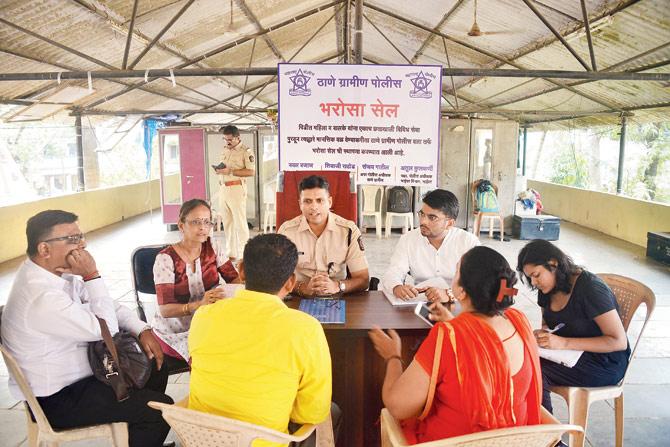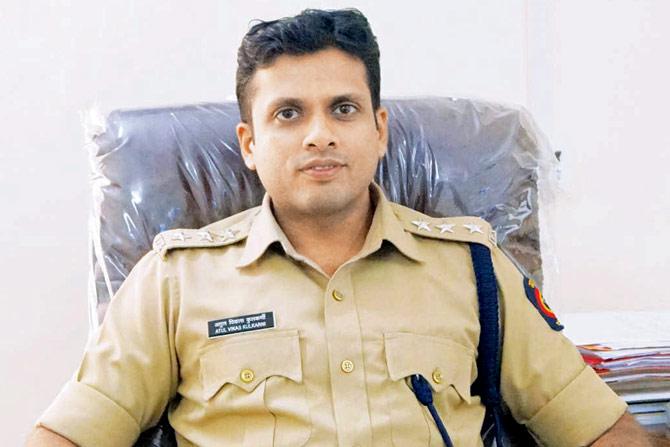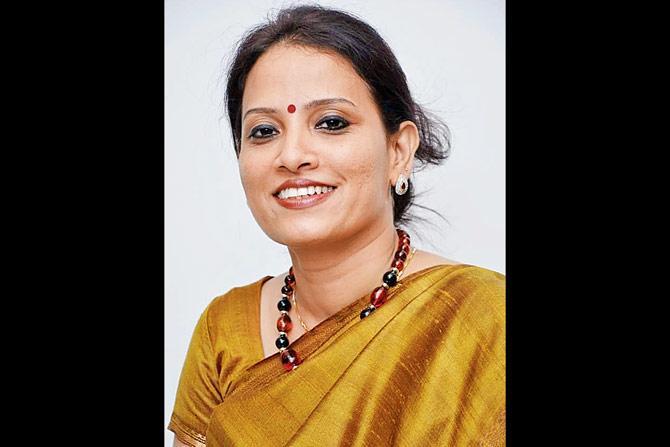Squabbling mister and missus, a dentist chucked out by a hospital, and a woman outraged by a stripping principal - the Bharosa Cell is a two-month-old hit at solving disputes out of court by dipping into logic, legalese and power of Ganesha

The terrace of Bhayander West police station hosts the Saturday morning Bharosa 'adalat', where cops, lawyers and counsellors pool in their knowledge to help warring parties change their mind about filing a police complaint.
The police station in Bhayander West is a big enough landmark to be a legitimate stop for share-a-rickshaws whizzing around the suburb. The station itself is a surprisingly accessible place. There's a temple within the premises; a Garfield-sized cat is lounging in the lobby; people come and go as if it's open house. In fact, the terrace of the building actually functions like one, with citizens washing their dirty linen in front of a motley group of lawyers, cops and counsellors.
In a one-of-its-kind initiative, the Bhayander police have started conducting grievance redressal meetings every Saturday, from 11 am to 2 pm, to settle petty complaints, such as fights in societies over parking or children's play areas, family disputes and others. Called the Bharosa Cell, the initiative is spearheaded by Sub-Divisional Police Officer (SDPO) Atul Kulkarni. The aim of the cell is to become the bridge between distressed citizens and indifferent courts. The idea is clear - the first information report does not have to be the first resort.
ADVERTISEMENT

Sub-Divisional Police Officer Atul Kulkarni intervenes in a domestic violence case at the Bharosa Cell meet. Pic/Hanif Patel
A redressal chamber
In his air-conditioned office, Kulkarni takes us through the plan. "We conducted a survey in February, through Nawal Bajaj [inspector general, Konkan range], in two colleges. It was related to the image of the police, complaints against the police, and complaints related to women. We interviewed almost 3,000 people and received a lot of clues. We understood what the issues facing citizens are and what their expectations are from us. Bharosa Cell was an initiative to tackle this."
The cell has been active for the last two months. "In Bharosa Cell, we have advocates for legal opinion, female counsellors who can guide women, and sometimes, we even take the help of medical experts, such as psychologists and psychiatrists. We've even solved one POCSO [Protection of Children from Sexual Offences] case. A small girl was not opening up to anyone, so we had a special counsellor, who came and spoke to her." The cell always invites both the aggrieved parties, because they don't want a one-sided conversation. "You want to fight, remove your frustration, do it. Then we try to find a solution. Our attempt is to reduce the bitterness [in both]. We try to get them to a middle ground."
On an average, the cell receives 12-15 cases per week; from the 75-80 cases they have received so far, almost 80 per cent have been resolved, says Kulkarni. Those that haven't can still approach the courts. "Sixty per cent of the cases are between husband and wife," he says. "Another 20 per cent is related to neighbours, and the remaining to society. One issue was on right of way between three societies. Another was when a female dentist had been [unceremoniously] removed from a hospital. She was harassed and thrown out. Once a principal removed his T-shirt, and a woman felt wronged. There are cases like that also."

Atul Kulkarni, Sub-divisional police officer
Bitter home truths
Most of the domestic cases they receive are classic examples of 'he said, she said.' Both parties are in such a hurry to prove they are victims, they don't allow members of the Bharosa Cell to speak for the first 20 minutes. They need to be dealt with massive amounts of patience. Kulkarni says, "Domestic cases don't always get solved in one session. They come [to us] three to four times."
When mid-day sat in on one session, there were three tables and plastic chairs for all the complainants. Table one had senior inspector Dattatray Borate and lawyer Sachin Naik; table two had Kulkarni, and lawyers Sumita Chilveri and Anilkumar Marlecha; and table three had counsellors Shweta and Ravi Joshi. The advice they doled out comprised a mix of legal knowledge and common sense. In the case of one couple, the husband had filed a case that his wife kept trying to commit suicide; the wife had counter-claimed that the husband had another woman in his life. The lawyers informed her that Section 497, the adultery law that the Supreme Court struck down recently, is no longer applicable. Sometimes, the advice also veered towards the bizarre. With another couple, the husband was accused of drinking excessively and not supporting the wife and children. He was asked to visit Ganpati right away and promise not to touch the bottle. Handily, a temple was on the premises.

Shanu Gohil
The test case
Of the several complaints we listened to, one of them went as follows. The two complainants were married and have a daughter. The wife had filed for divorce and was seeking maintenance. The husband wanted a DNA test. The wife wanted to do the test in Singapore for she believed her husband would pay off any doctor in India. The husband was willing to pay for the test in India, but would not pay '3 lakh for the test in Singapore. This case is currently in the Bombay High Court.
After some amount of yelling on both sides, Kulkarni says, "Take their statements. They're not going to sort it out. They should wait for the court order." After the husband left, the wife and her family returned to the table. Tempers had cooled down, and at least, she was willing to listen. Marlecha says, "You go to the No. 1 doctor. You go to three doctors. He [your husband] can buy off one doctor, two doctors, not three. I will get you the best doctor." He immediately calls a doctor for a recommendation and passes on the number to her. "If you go to the court, nothing will happen. You will just keep getting a date after date. This way, at least you can sort this out in a week." Before leaving, the woman's mother, who noticed us scribbling, says, "Don't take her name down. We need to get her married off... [after a pause], for the second time."
Reducing the load
At last count, Bombay High Court had 4.64 lakh cases pending. The question to ask is, if you have to wait for justice your entire life, have you received any justice? Bharosa Cell can be a timely intervention in the middle of this. Later, we spoke to one of the complainants, whose issue was resolved by Kulkarni and his team. Shanu Gohil, the local corporator, had been approached by residents of Bhavani Jyot Society.
"There's a community Ganpati in their society," she told us. "The builder tried to do dadagiri, and told those people that you cannot celebrate Ganpati in the premises. That 'this is my place, a private place. You go to town planning, and get a sanction. Only then will I allow.' We had approached the Navghar police station. The support we needed, we didn't receive. Then I suggested we go to Mr Kulkarni. He called the builder also and did a joint meeting. And we got the result. We celebrated Ganesh Chaturthi where we wanted to. Now the same problem, he [the builder] is trying to do with Navaratri. So, I have to call Mr Kulkarni again."
In the lobby of Bhayander West police station, there is a board with a message in Marathi on it. The gist of the message is that you cannot attack police officers, with a telling line in it: a government servant represents the government; his job is to serve the people. Kulkarni, a computer science engineer, a TISS graduate, and an IPS officer, seems to have been one of the few to have understood it.
Also Read: Mumbai: 4 'Drunk' Women Held For Assaulting Cops In Bhayander
Catch up on all the latest Mumbai news, crime news, current affairs, and also a complete guide on Mumbai from food to things to do and events across the city here. Also download the new mid-day Android and iOS apps to get latest updates
 Subscribe today by clicking the link and stay updated with the latest news!" Click here!
Subscribe today by clicking the link and stay updated with the latest news!" Click here!







